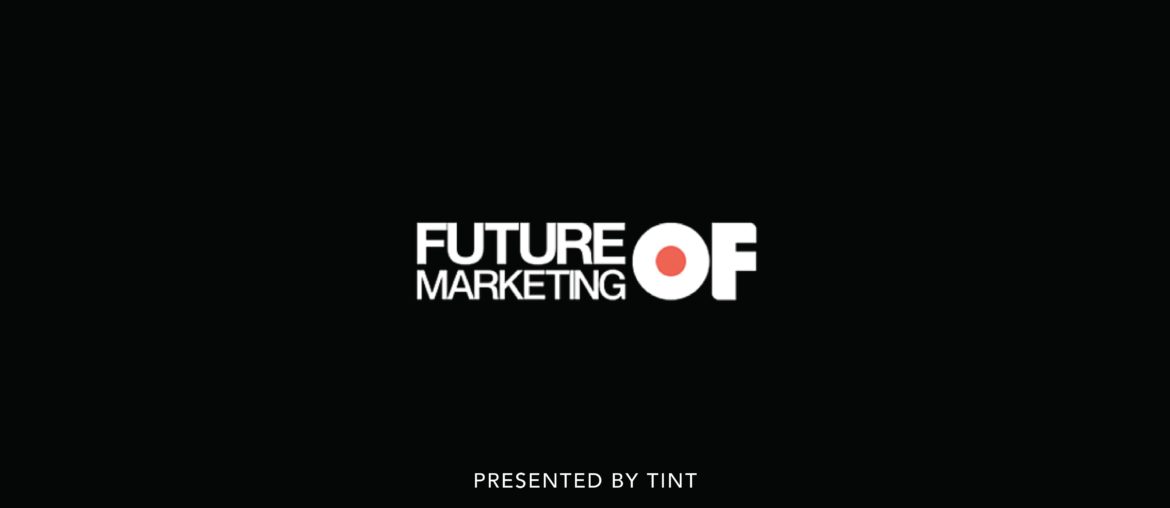This content originally appeared April 24, 2020 as part of the Future of Marketing weekly email series. Subscribe here
Brands and particularly educational institutions are creating virtual alternatives to school cancelations, remote learning is still surging, and researchers are promoting mental health education to improve work-life balance.
Leaders listen to understand the market – where it’s heading, what people need – and use insights to fill the gaps, channel their “why,” and inspire connections. Great companies move fast, approach their audience intentionally – and recognize that constraints breed opportunities to embrace creativity.
Virtual celebrations for students
Social distancing is challenging schools to find creative solutions to celebrate graduates, enroll incoming students, and recruit from a distance.
Actor John Krasinski (known as “Jim” from The Office), launched an uplifting YouTube series, Some Good News, and successfully hosted a virtual prom night for graduating high school seniors. The #SGNProm hashtag generated over 1.5 million views – while the YouTube series has 1.97 million subscribers to date. High schools and universities are also leveraging technology to create virtual graduation experiences and appeal to prospective students.
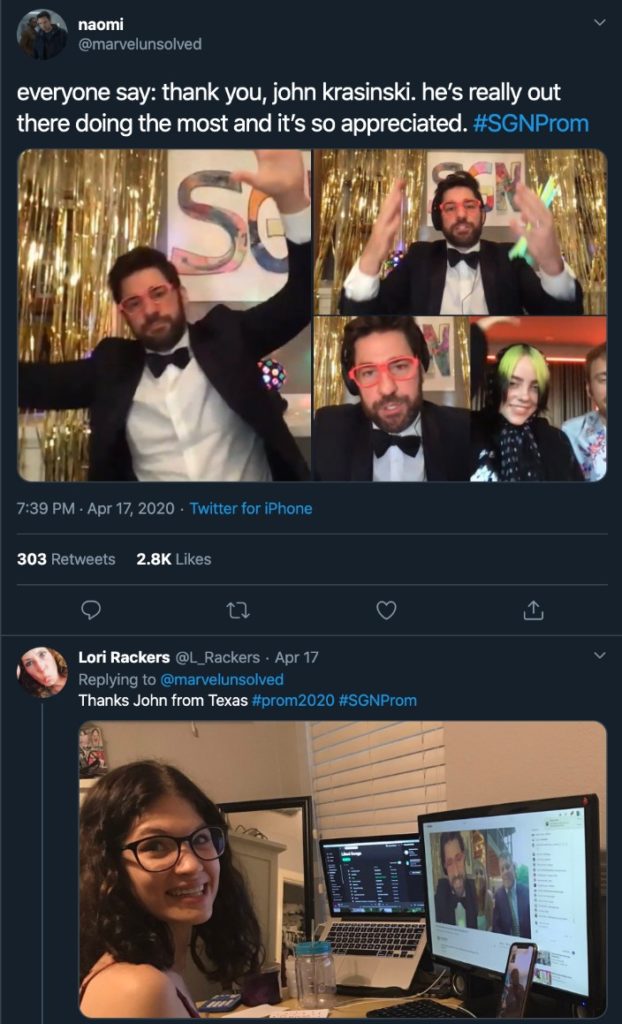
Natural Light unveiled its plans to host Worldwide Commencement for college students – a ceremony featuring special guests including Mark Cuban and sports commentator, Stephen Smith. The brand teases at “unforgettable speeches & sage advice on how to survive in the real world.”
It takes creativity to build memorable moments. In our latest article, we highlight several strategies to creatively support education.
eLearning on the rise
A rising number of non-traditional education companies are teaching people new skills to meet the changing demands of the job market. Some students who would normally consider a 4-year institution are now evaluating quicker and more affordable self-learning alternatives – including coding boot camps, online mentoring, and platforms like Masterclass. In fact, research shows revenues in the eLearning industry have increased by over 900% since 2000 (and are expected to continue surging).
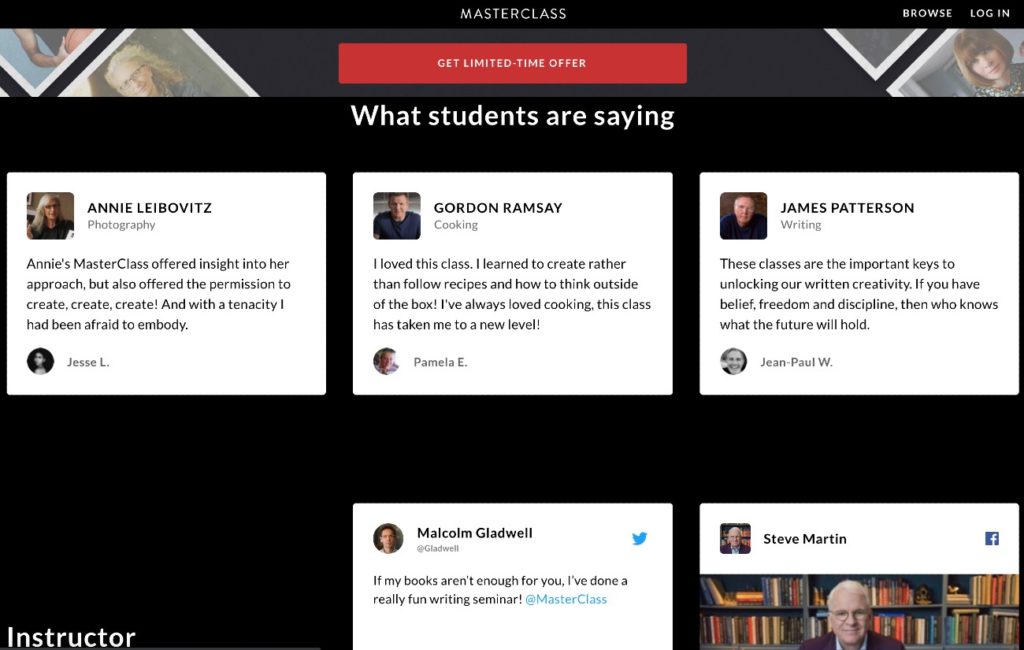
Schools are now hosting virtual admissions and open houses; several Ivy league universities are offering free online courses; Google launched #TeachFromHome to help educators adjust and share their experience online – and users joined #appleEDUchat to discuss how school culture has changed.
With the global eLearning market predicted to reach $325 billion by 2025 – digital marketing is crucial for companies to educate consumers and appeal to those who want to learn new skills. Identify which platforms you need to drive awareness, approach your audience with purpose – and teach them something new.
Engineering mindful cultures
Blurred lines between life and work are urging leaders to check on their teams and show empathy. “I fear an extended period of working from home is building a mental health crisis,” states Stanford economist Nicholas Bloom.
Real, a modern therapy practice with plans to open their doors in April launched their company online. Their website promotes free mental health check-ins, virtual educational events, and intimate support groups – demonstrating their confidence to fill consumer needs and build a safe community online.
Personal trainers, yoga instructors, and gyms are also offering free #liveworkouts. Meanwhile, universities launched free online classes, including Yale’s most popular course in history, The Science of Wellbeing. “Everyone knows how to protect their physical health – but people want similarly actionable tips to improve their mood and well-being during this challenging time.” shares Yale professor Laurie Santos.
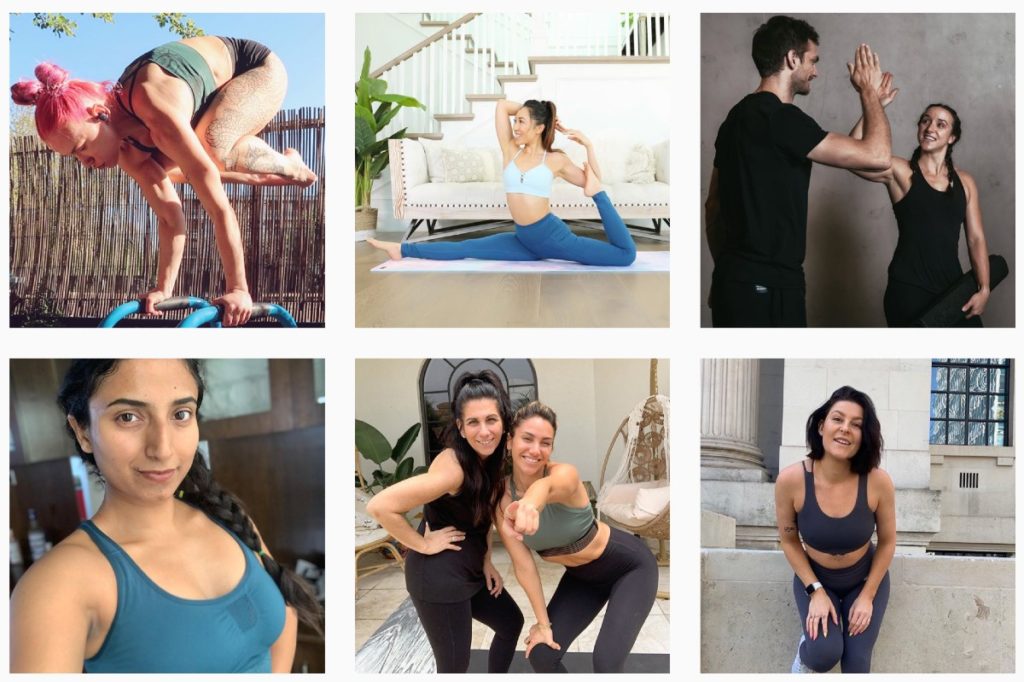
Encourage employees to unplug, choose quality work over quantity, and participate in mood-enhancing activities. Brand reputation extends far beyond your consumers’ perception – build purpose internally, too.
#BrandCrush:
University of Michigan Health
University of Michigan Health is recognizing stories of brave, essential workers in their #HailtoTheFrontLine campaign – inviting the community to share positive messages and notes of encouragement. The university also launched other initiatives, including well-being resources and a virtual care program to give people access to healthcare and wellness from the comfort of home.
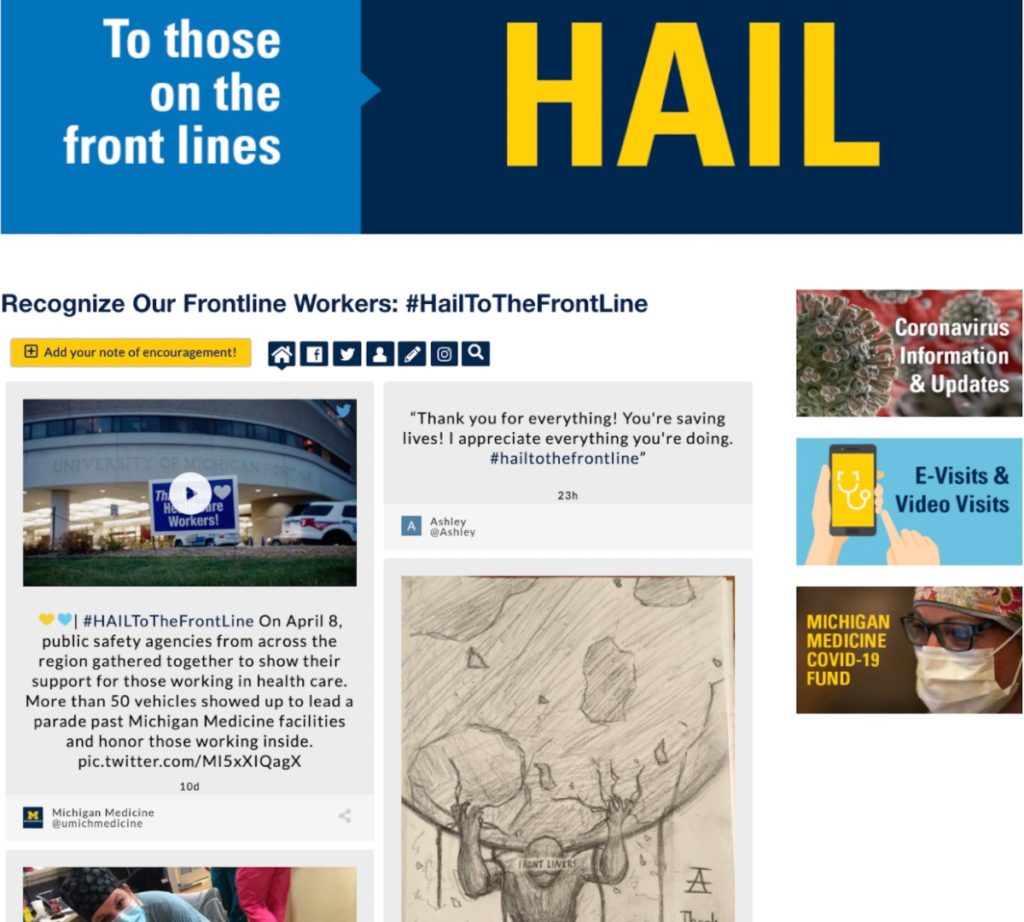
To fill urgent needs, researchers at the University of Michigan Health sought 3D-printing to invent an in-house vent-splitter – allowing multiple patients to receive customized pressures with a single ventilator. The university also partnered with Blue Cross Blue Shield and 25 local hospitals to find new treatments and procedures. This highlights how the university acted quickly to innovate – using its resources to build community and help shape the future.
Consider your brand purpose and contributions to society. How can you make your brand matter for generations to come?
